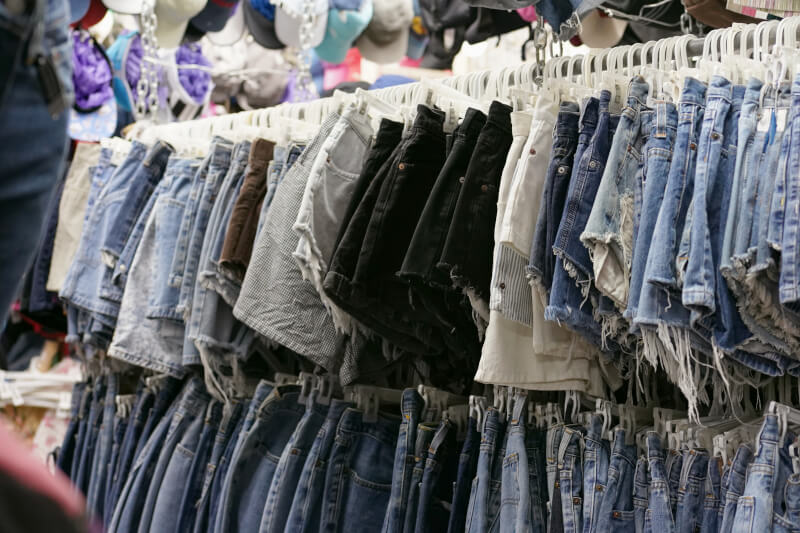Those who came of age in the early 2000s are changing the face of the luxury business with their unique tastes, priorities, and technological savvy. Gen Z is a new generation of consumers who are having a significant impact on the luxury market. Gen Zers, those who came of age in the early 2000s, are changing the face of the luxury business with their unique tastes, priorities, and technological savvy.
You Can’t Emphasise the Significance of Generation Z to the High-end Retail Sector
They are changing the industry in ways that humans have never seen before because of their unwavering dedication to sustainability, influential presence in the digital sphere, inclination towards authenticity and personalization, and preference for affordable luxury experiences. The progressive requirements and beliefs of this influential age demand that both new and established luxury brands undergo significant change and adaptation.
Luxury firms can engage with Gen Z consumers in the long term and prosper in the industry’s current state of flux by emphasising sustainability, utilising digital platforms, providing customised experiences, and testing out novel business models. The next generation, Generation Z, is at the helm, paving the way into a new era of luxury consumption, and the luxury industry must adapt or perish.
Ways That the Millennial Generation Has Revolutionised the High-end Industry
Traditional definitions of luxury emphasise high prices and limited availability. However, for members of Generation Z, “luxury” now refers to items and experiences that help them express their unique identities while also fulfilling their material needs. Because of this change in how people view luxury products, high-end companies are reevaluating their standards.
They are now more concerned with making items that not only function well but also tell a story, provide the buyer with a special experience, or make them feel like they are part of a community. The shift towards value-based luxury is helping companies forge stronger bonds with the millennial generation.
Accepting Long-Term Effects

Generation Z places a premium on sustainability because they were raised in a more environmentally aware period. Because of the importance they have on sustainability in business, they actively seek out brands that share their beliefs. Not surprisingly, high-end companies are now adopting greener methods of operation. Luxury companies are taking environmental responsibility by using less energy and creating fewer greenhouse gas emissions in their production processes. The sustainability-focused expectations of millennials and their successors (Gen Z) are driving a shift in the luxury market towards more socially and environmentally responsible products.
In terms of the greater purpose and societal influence of their purchases, customers of Generation Z are interested in more than just the product or service itself. They have a preference for companies that make a difference in the world through their products. The rise of “purpose-driven consumption” has inspired several high-end companies to get involved in CSR and charitable giving. Luxury businesses are learning that exhibiting social responsibility is an effective approach to resonate with Gen Z consumers, and so they are making pledges to give a certain proportion of sales to a specific charity or launching initiatives to uplift poor communities.
Social Media’s Influence

Having grown up with smartphones and social media platforms as fundamental to their daily lives, Gen Z is the first generation to be entirely engaged in the digital sphere. Each new generation of adults is equipped with the ability to wield considerable influence thanks to constant connectivity and online presence. The majority of people now use social media as their primary method of keeping up with trends, sharing personal stories, and interacting with brands.
Luxury firms are putting a lot of money into online marketing because they know how influential millennials and Generation Z are in the digital sphere. Luxury businesses may leverage the potential of digital influence on consumer behaviour in several ways, including by partnering with campaigns, adjusting to interactive campaigns, and encouraging direct connection with Gen Z customers on social media platforms.
Gen Z is the most diverse generation to date, and its members are deeply dedicated to issues of social justice and equality. They want and need the brands they engage with to share their beliefs and ideals. This means high-end companies have to make diversity and inclusion central tenets of their identities. This transition is reflected in advertisements that include a more varied range of people, fashion that includes a wider range of sizes, and efforts to advance social justice and equality. Luxury brands can strengthen their connections with Generation Z by adopting policies that reflect the values of this demographic.
Originality and Customisation

When interacting with premium brands, members of Generation Z prioritise genuineness and tailor-made experiences. They want brands that speak to who they are as individuals and provide options to suit their specific preferences. As a result, high-end retailers are making customisation and personalisation central to their product lines.
Luxury brands are giving millennials and Generation Z consumers more ways to show their uniqueness through customization by offering services like monogramming and engraving, as well as made-to-order collections. Furthermore, Generation Z is valuing genuine connections over traditional marketing strategies, which is why they are drawn to firms with genuine tales and transparent business practises.
The demand from Generation Z for immersive digital experiences is having a major effect on the high-end industry. Luxury firms are adapting by incorporating cutting-edge technology into their e-commerce offerings to meet consumer demand. Virtual try-ons, 3D product views, and virtual store tours are just a few of the ways that retailers are putting virtual reality (VR), augmented reality (AR), and 3D visualisation to use.
Both the online shopping experience and the ability of Generation Z consumers to make educated purchases are improved by these technologies. In addition, they allow for a natural fusion of online and offline purchasing experiences, satisfying the omnichannel retail preferences of the millennial generation.
Affordability of Luxury in an Age of Sharing

There is less of an emphasis on personal property among members of Generation Z. In this culture, memories are valued more than stuff. As a result of this shift in thinking, rental, and subscription-based luxury services have become increasingly common. In response, luxury companies are launching programs that provide millennials and Gen Zers easy access to expensive goods without requiring them to make a long-term financial investment. To satisfy the demand for more approachable luxury among members of Generation Z, luxury labels have begun offering rental services for high-end apparel and accessories, as well as exclusive memberships and temporary collaborations.
